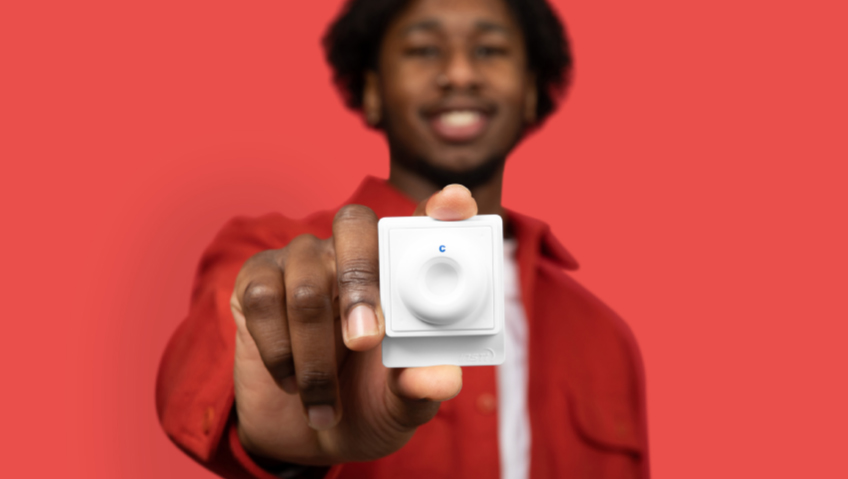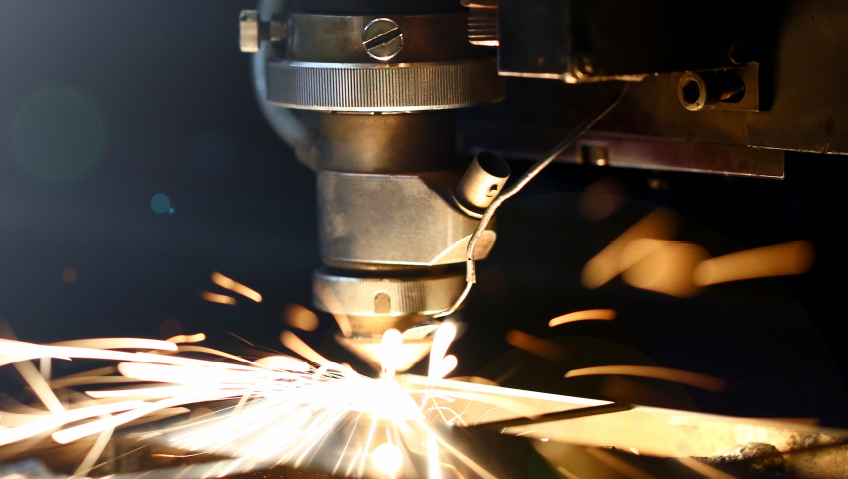Early illness detection is a precious tool for maintaining health and making rapid, well-informed health decisions. And it’s something bioLytical Laboratories Inc. has honed via its leading-edge solutions for infectious illness diagnosis, the first step in connecting patients with proper care and treatment and even saving their lives.
A privately-owned Canadian company headquartered in Richmond, BC, bioLytical now sells and markets its INSTI® HIV-1/2 Antibody Test, including a self-test version which allows users to test in the privacy of their own homes. Its line-up of one-minute INSTI® tests can diagnose infectious diseases like COVID-19, HIV, hepatitis C, and syphilis with speedy, precise results, which have received worldwide regulatory approval, including the US FDA, Health Canada, and the CE mark in Europe.
The INSTI® platform offers vital point-of-care diagnostic tests that are both quick and extremely accurate using advanced flow-through technology, delivering a result in 60 seconds or less, bringing invaluable clinical and financial advantages to patients, healthcare providers, and public health organizations.
“From the beginning, we’ve been an industry leader in HIV diagnostics with our one-minute platform INSTI® and our flagship HIV products. The importance of an accurate and fast assay was the main reason bioLytical was founded,” says Rob Mackie, President and CEO.
“With flow-through technology, we give more results in less time with one sample. Historically, it has been a challenge to have multiple results on a lateral flow platform which, due to the way the platforms are designed, flows over your antigens, leading to a possible degradation of the sample.”
Currently, approximately 36.4 million people are living with HIV worldwide, and many don’t know they have it.
“We need people to know their status so they can connect to suitable anti-retroviral treatment, or ART, to live a quality life; the by-product is that we help to dramatically decrease new infections by significantly reducing the chances of onward transmission,” Mackie says. “That’s why testing for HIV and early detection is so important, and it has been our focus since inception.”
bioLytical’s success includes not only the world’s fastest HIV and syphilis rapid tests but also its ability to determine what diagnostics are in demand worldwide. One example is the recent surge across North America in hepatitis C infections. Since the development of affordable and effective treatment, testing for hep C has become more vital to connecting patients to care. However, more recently, treatment has become affordable for insurers and the average patient, increasing demand for an accurate and accessible hepatitis C test.
“When treatment costs tens of thousands of dollars, there is less urgency to develop a rapid test,” says Mackie. “It’s very challenging to give somebody a result if there is no easy or accessible remedy due to a lack of resources. Now that treatment is covered and reasonably priced, we can focus more on diagnostics.”
The INSTI® platform’s high-quality hepatitis C test is comparable to its industry-leading INSTI® HIV test, with over 99.96 percent accuracy. “Our research and development team has done an outstanding job fine-tuning a highly effective hep C test,” Mackie says.
At the moment, hep C testing in Canada is performed in a professional format called a POCT (point-of-care test) where a doctor, pharmacist or medical professional administers the test, but self-testing could “change this dramatically,” allowing customers to purchase a test kit at a drug store and test themselves at home.
“We are the first company in Canadian history to receive an HIV self-test approval using our INSTI® platform, and the hepatitis C test uses the same innovative technology approved for ease of use for a self-test in HIV,” says Mackie.
The company has gained professional-use approval for its hepatitis C test across Europe and expects to receive WHO prequalification soon. Mackie plans to also launch in North America this year.
While bioLytical is ready to address hep C, much as it has taken a bite out of the HIV sector, COVID-19, unfortunately, put everything on hold for close to three years. However, that delay helped the company fine-tune its marketing approach to address the right demographics of a world suffering from different diseases.
“What sets us apart from our larger competitors is that bioLytical can pivot on a moment’s notice to take advantage of opportunities that otherwise might be missed,” Mackie says. “With us being a private company, we’re growing quite rapidly, representing our region strongly. But we continue to keep ourselves nimble and agile, able to react on our feet to different healthcare challenges, such as the hep C situation.”
While bioLytical knew there was a huge opportunity with hep C, they discovered a largely untapped market in India and Africa for hepatitis B. Subsequently, the company is developing a hep B test performed on the new lateral flow platform, originally developed for COVID-19.
“It is serendipitous how things unfold. Hep B was never on our radar; it was not a focus before COVID-19,” Mackie says. “We were planning to work on a lateral-flow HIV-confirmatory test for the WHO but ended up pivoting toward COVID-19 to help our country fight the virus, as any other local company would.”
During its efforts to make a COVID-19 antibody test on the INSTI® platform, bioLytical developed a new antigen platform called iStatis which lends itself to detecting hep B antigens more effectively due to the nature of the virus.
Despite adversity, including shutting down for seven months during the height of COVID-19, the company persevered. “I think bioLytical and the HIV industry have both been fortunate, and I think it’s all because the world needs the products bioLytical develops,” says Mackie.
“We have an amazing and successful company with a great culture and family here with our employees. Now, three years later, we are three times the company, we have launched a new platform, and we feel that we can face any challenge head-on,” Mackie says.
“If we can’t figure it out on INSTI®, we’ll figure it out on iStatis. We went from having an antibody-based platform to also having an antigen-based platform, and as such, bioLytical is confident it can develop new assays for the ever-changing healthcare needs.”
Unfortunately, COVID-19 created other adverse effects, including a significant increase in HIV infections due to testing being severely hampered, something that regions worldwide are seeing the impact of this year.
Mackie says, “We are seeing infectious rates equal to the rates a decade ago—which reiterates the importance of knowing your status to connect to care and reduce onward transmission. However, to regain the progress we made won’t take as long as it took us to get there in the beginning.”
This is due in part to the pandemic introducing more people to rapid testing and the use of self-testing as a favourable option for people to investigate ways to keep themselves safe without the aid of doctors or leaders—a new tool to help manage health as the world learned more about the novel virus and what worked to help prevent and keep people safe. “Self-testing goes right along with people taking more responsibility,” he adds.
“It’s unfortunate this wasn’t adopted earlier because our health is the most important thing we have and, therefore, the great equalizer. Without health, we have nothing.”
He adds that education is also key, particularly when breaking down stigma. For years HIV was associated solely with drug use and lifestyle choices, misplacing the blame on the patient. There was little to no focus on other methods of transmission—for example, blood transfusions.
“HIV is transmitted through six bodily fluids, and an overlooked infectious place is your gums,” Mackie says. “You can get HIV by sharing a toothbrush if both partners have bleeding gums or sores, and many people don’t know that.”
While Mackie is not discounting the need for great doctors and lower wait times, self-testing allows patients to take responsibility for their health by managing it instead of immediately seeing a doctor whenever there’s an issue. Being proactive and having access to valuable information leads to making informed health decisions and providing some reassurance at the same time.
“We are excited for the months and years ahead of us,” says Mackie. “What the pandemic has taught us is how easy, accurate, and available rapid tests are to use and how important early detection is,” he says.
“With INSTI®, you can take our test and find out if you have hep C in just one minute and get connected to care. Treatment is now through oral pills, taken daily for two to six months. The medication is highly effective with a 95 percent success rate, helping patients rid the disease and lead healthy lives.”
Conversely, if you find you have hep C through symptoms, treatment may be more difficult, possibly leading to the need for lifelong dialysis, costing upwards of hundreds of thousands of dollars over a patient’s lifetime. “It is a terrible disease; left untreated, the virus can lead to severe liver disease. Often known as a silent killer, it can lead to painful suffering for those impacted by the disease.”
STIs are costly, and potentially deadly diseases are rife around the world. Africa spends tens of billions a year to treat a significant number of new cases of chlamydia and gonorrhea each year. Many global regions are seeing historical surges in STIs, such as syphilis. Mississippi alone saw an increase of over 900 percent in congenital syphilis over the past six years.
“Sexually transmitted diseases are not going away, so it is important to have proper protocols,” Mackie says. “Managing your own health is part and parcel, so we’ve put a lot of effort into our online presence, including our social media and websites, taking it upon ourselves to spread awareness for testing and infectious diseases.”
Along with a host of notable lifesaving inventions and best-in-show base platforms, bioLytical is also an industry leader, a rare achievement for a Canadian biotech company.
“We’re not buying from China and repackaging with a maple leaf, like many competitors,” Mackie says. “INSTI® and iStatis are 100 percent developed in-house, right down to our antigens. We start with a proprietary cell bank and develop our antigens here at bioLytical. We do our plastic injection here locally, so there’s no supply chain risk of disruption. That was a big thing, too.”
With the ultimate goal of everything eventually being available for self-testing, bioLytical envisions the future of health care as being in the hands of the people themselves for early diagnosis and management.
“The future is bright for us in rapid testing,” says Mackie. “With our two platforms and amazing research and development team, we’re confident that we are nimble, fast, and highly accurate, capable of reacting with agility to address some of the world’s most severe health challenges.”






